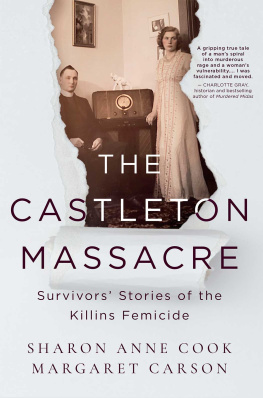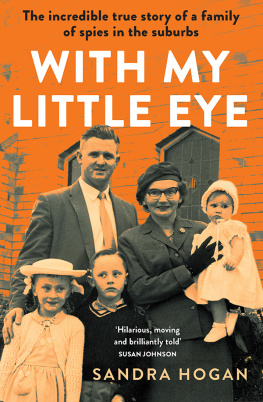
Towards a Global Femicide Index
Increasingly there is global attention on the prevalence of womens deaths resulting from intimate partner violence. Campaigns such as Counting Dead Women in Australia, the Femicide Census in England, and the Canadian Femicide Observatory, and the emergence of family violence death review teams globally, build on the work of agencies such as the United Nations and the World Health Organisation, highlighting the fatal consequences of intimate partner violence for women around the world.
This book considers the need for and the steps to be taken towards creating a meaningful framework for a global index of womens deaths from intimate partner violence. While there are global indices for deaths that relate to public violence, such as terrorism, there is to date no systematic global count of killings of women by their intimate partners. It considers the possibilities and challenges that arise in counting intimate femicide. It argues that such an exercise needs to avoid narrow empiricism and instead be part of a broader feminist political project aimed at ending violence against women.
This work will be of great interest to students and scholars of criminology, sociology, law, policing, and politics.
Professor Sandra Walklate is Eleanor Rathbone Chair of Sociology at the University of Liverpool (UK), Professor of Criminology at Monash University (Australia), and Adjunct Professor at QUT (Brisbane, Australia). Internationally recognized for her work in victimology and research on criminal victimization, her recent publications include A Criminology of War? (2019, with R. McGarry); Crime and Emotions: Towards a Criminology of Emotions (2019, edited collection with M. Hviid-Jacobsen); and Intimate Partner Violence, Risk and Security (2018, edited with Kate Fitz-Gibbon, Jude McCulloch, and JaneMaree Maher). She is currently Editor-in-Chief of the BritishJournal of Criminology, and in 2014 she was given the British Society of Criminologys outstanding achievement award.
Dr Kate Fitz-Gibbon is Senior Lecturer in Criminology in the School of Social Sciences at Monash University (Australia) and Lead Researcher in the Monash Gender and Family Violence Prevention Centre. Her research examines family violence, the law of homicide, and the impact of criminal law reform across Australian and international jurisdictions. This research has been undertaken with a focus on gender, responsibility, and justice. Dr Fitz-Gibbon has advised on homicide law and family violence reform in several Australian and international jurisdictions. Recent publications include Intimate Partner Violence, Risk and Security (2018, edited with Sandra Walklate, Jude McCulloch, and JaneMaree Maher); Homicide, Gender and Responsibility: An International Perspective (2016, edited with Sandra Walklate); Homicide Law Reform in Victoria: Retrospect and Prospects (2015, edited with Arie Freiberg); and Homicide Law Reform, Gender and the Provocation Defence (2014).
Professor Jude McCulloch is Professor of Criminology at Monash University (Australia) and the inaugural Director of the Monash Gender and Family Violence Prevention Centre. She leads a diverse research programme on family violence prevention. Prior to her academic career, she worked in a womens refuge and as a community lawyer, providing legal assistance and support to women victims of crime as well as engaging in campaigns around gender and justice. The Australasian Council of Women and Policing awarded her the Griffith University Prize for excellence in research in improving policing for women. Jude is an expert on risk, security, policing, and terrorism. Her current research compares responses to the risk of family violence and terrorism and the impacts of these different approaches on womens security.
Professor JaneMaree Maher is Professor and Director of the Centre for Womens Studies and Gender Research Sociology at Monash University. She works on gendered violence and hate crimes using feminist legal paradigms. Her research more broadly addresses family and gender issues, with a focus on womens caring and employment in family life. Recent book publications include Policing Hate Crime: Understanding Communities and Prejudice (2017, with G. Mason, J. Maher, J. McCulloch, S. Pickering, R. Wickes, and C. McKay) and Sex Work: Labour, Mobility and Sexual Services (2013, with S. Pickering and A. Gerard).
First published 2020
by Routledge
2 Park Square, Milton Park, Abingdon, Oxon OX14 4RN
and by Routledge
52 Vanderbilt Avenue, New York, NY 10017
Routledge is an imprint of the Taylor & Francis Group, an informa business
2020 Sandra Walklate, Kate Fitz-Gibbon, Jude McCulloch, and JaneMaree Maher
The right of Sandra Walklate, Kate Fitz-Gibbon, Jude McCulloch, and JaneMaree Maher to be identified as authors of this work have been asserted by them in accordance with sections 77 and 78 of the Copyright, Designs and Patents Act 1988.
All rights reserved. No part of this book may be reprinted or reproduced or utilised in any form or by any electronic, mechanical, or other means, now known or hereafter invented, including photocopying and recording, or in any information storage or retrieval system, without permission in writing from the publishers.
Trademark notice: Product or corporate names may be trademarks or registered trademarks, and are used only for identification and explanation without intent to infringe.
British Library Cataloguing-in-Publication Data
A catalogue record for this book is available from the British Library
Library of Congress Cataloging-in-Publication Data
A catalog record has been requested for this book
ISBN: 978-1-138-38908-3 (hbk)
ISBN: 978-1-138-39313-4 (ebk)
Typeset in Times New Roman
by codeMantra
This book is dedicated to all those across the world who work tirelessly to prevent violence against women.
Women matter. Killing women matters. Counting the number of women killed is an important part of making it visible. It needs to be made visible to the public, policy makers, and politicians.
The gendering of homicide statistics requires more than identifying the sex of the victim. It needs the sex of the perpetrator. It needs the identification of any gendered relationship between perpetrator and victim. This includes an intimate partnership and other family relationships. It also includes sexuality, as when a killing is part of rape. Potentially it can include a range of gendered motivations, including, for example, deaths linked to dowry and to so-called honour.
The gendering of homicide statistics should be simple and obvious. It should be a routine part of official statistics on crime. But it appears that not all think it is simple and obvious, especially statistical bodies and other public policy entities engaged in the processing of unlawful death.
This excellent book explores the nuances and complexities in the processes of making visible the gendered killing of women. It balances the need to count with awareness of the dangers that incorrect forms of simplification might generate. It argues for a global femicide index while acknowledging the difficulties in implementing the apparently simple statement that the killing of women can be a gendered killing of women.










